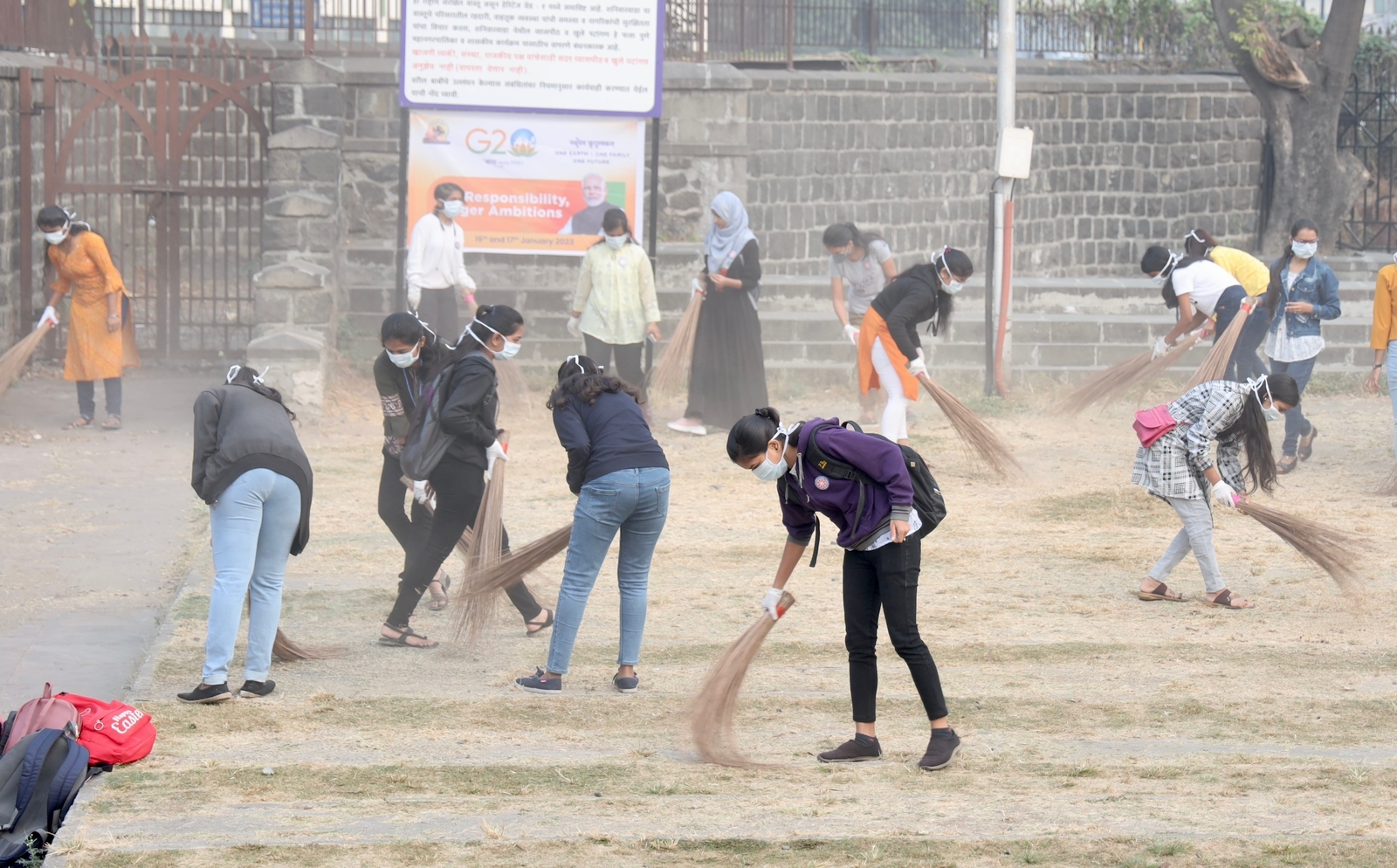Pune’s municipal authorities have launched a round-the-clock cleanliness drive along Airport Road, targeting unhygienic conditions that have drawn stray animals and birds, escalating the risk of dangerous bird strikes. This intensified sanitation effort, spanning a four-kilometre radius from the airport, addresses long-standing concerns voiced by aviation officials and local representatives regarding potential obstructions to flight operations and the broader implications for a truly sustainable and equitable urban environment.
The impetus for this sustained cleanliness operation emerged from strong dissatisfaction among senior officials and local representatives concerning the deteriorating hygiene in the area. The Airport Authority of India (AAI) had repeatedly highlighted that the increasing presence of birds and animals near the runway posed a significant threat, capable of obstructing vital flight operations and endangering passenger safety. This proactive response by municipal authorities underscores a crucial nexus between robust urban sanitation and critical infrastructure security, a key element in modern city planning. To ensure the effectiveness of this continuous 24-hour cleanliness drive, a senior health inspector has been appointed as the nodal officer, overseeing implementation across three distinct work shifts. This structured approach aims to maintain stringent hygiene standards throughout the day and night. Specific officers have been assigned to manage different zones within the designated four-kilometre radius, which includes the area from Pune Airport to 509 Chowk, and nearby localities such as Nagpur Chawl and Kalwad Vasti, extending up to Nagar Road.
Their mandate is clear: to prevent the formation of chronic garbage hotspots along this vital public thoroughfare and ensure consistent environmental stewardship. A pivotal aspect of the directive involves the enclosure of open plots with the cooperation of respective ward offices, ensuring these spaces are maintained in hygienic conditions. Additionally, daily deep cleaning activities are to be meticulously coordinated and executed. To support this comprehensive operation, zonal offices are tasked with deploying an adequate number of sanitation workers, garbage collection vehicles, and other essential resources across all three shifts. These dedicated sanitation workers will operate seven days a week, with provisions for substitute personnel to ensure continuous coverage, reflecting a commitment to uninterrupted public service. This concerted effort to manage solid waste and prevent accumulation of organic matter is vital for mitigating bird activity, which poses a substantial threat to aviation. Bird strikes can cause significant damage to aircraft engines and airframes, leading to costly repairs, flight delays, and, in severe cases, catastrophic accidents. By proactively addressing the environmental factors that attract wildlife, the city is not only safeguarding air travel but also reinforcing its commitment to a greener, safer, and more resilient urban ecosystem where infrastructure development harmonises with ecological considerations. Beyond aviation safety, the cleanliness drive carries significant implications for public health and environmental sustainability.
Unhygienic conditions, rampant garbage dumping, and the presence of stray animals contribute to the spread of diseases, diminish the quality of life for residents, and detract from the city’s aesthetic appeal. By establishing a systematic and continuous waste management protocol, Pune aims to enhance the overall well-being of its citizens, create a more livable environment, and exemplify best practices in urban sanitation, aligning with the principles of eco-friendly and equitable urban development. The designated officers are responsible for submitting a daily progress report of the cleanliness drive on this vital road to the deputy commissioner of solid waste management. This rigorous reporting mechanism ensures accountability and allows for continuous monitoring and adaptive management of the sanitation efforts. The initiative underscores a holistic approach to urban governance, where cross-departmental coordination and sustained vigilance are prioritised to tackle complex challenges. Ultimately, this drive is not merely about tidying up; it is about embedding a culture of environmental responsibility and ensuring that Pune’s growth as a major urban hub is underpinned by robust public services and a commitment to a healthy, sustainable future for all.
Also Read :Delhi bans polluting fuels, targets old vehicles in fresh anti-pollution push


